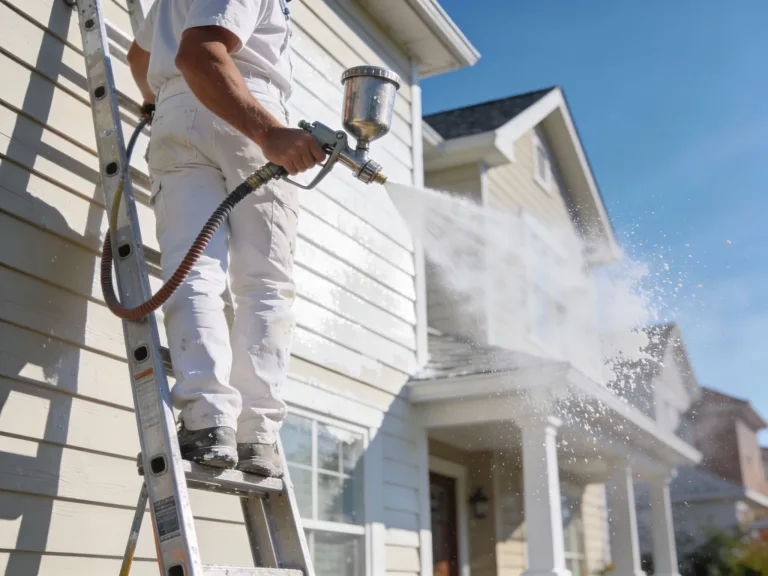Understanding Fire Watch: What It Is And When Your Business Needs It
Fires can devastate a business in minutes. Whether it’s a construction site, commercial building, or industrial facility, fire risks are real, and so are the consequences of being unprepared. This is where fire watch security services come into play.
But what exactly is fire watch? And when is it legally or practically required for your business? Here’s everything you need to know to stay compliant, reduce liability, and keep your site protected.
What Is Fire Watch?
Fire watch refers to the deployment of trained personnel who monitor a site for potential fire hazards when automatic systems, such as sprinklers, alarms, or detection sensors, are offline or insufficient.
Fire watch guards patrol designated areas, check for signs of smoke or fire, maintain logbooks, and are prepared to contact emergency services at the first sign of trouble. They serve as human surveillance systems, bridging the gap during high-risk periods.
Unlike general security guards, fire watch personnel are specifically trained to detect and respond to fire-related risks and comply with local fire safety regulations.
When Is Fire Watch Required?
Fire watch isn’t just a precaution: it’s often a legal requirement under certain conditions.
According to the National Fire Code of Canada, and enforced by provincial authorities, you must provide fire watch when:
- Your fire alarm or suppression system is offline due to maintenance or malfunction
- Your building is under construction or renovation and lacks active fire protection
- You’re hosting an event in a facility without adequate fire safety infrastructure
- Local fire departments issue an order following a code violation
- High-risk activities (e.g., hot work or welding) are taking place on-site
In Alberta, failure to comply with these requirements can lead to fines, project shutdowns, and even criminal charges in the event of a fire-related incident.
Common Business Scenarios Requiring Fire Watch
1. Construction Sites
Many construction projects begin without working alarm systems or sprinklers. Fire watch guards ensure that sparks, flammable materials, and fuel storage are monitored properly until the site becomes fully compliant.
2. Commercial Buildings During Maintenance
If your building’s fire alarm or sprinkler system is shut off for repairs or upgrades, provincial codes may require 24/7 fire watch coverage until systems are restored.
3. Industrial Facilities Performing Hot Work
Welding, cutting, or any activity that generates heat or sparks must be monitored, especially in enclosed environments with combustible materials. Fire watch security guards are trained to monitor these tasks safely.
4. Events In Temporary Or Non-Compliant Spaces
Concerts, festivals, or large indoor gatherings in warehouses or converted buildings may lack adequate fire suppression systems. Event organizers can meet code requirements by hiring temporary fire watch security services.
What Fire Watch Guards Actually Do
The role of fire watch guards goes beyond walking the premises. Here’s what a professionally managed fire watch operation includes:
- Routine patrols of all designated zones
- Inspection of fire extinguishers and exits
- Detection of hazards, including electrical issues, blocked pathways, or smoke
- Real-time reporting and incident documentation
- Direct communication with fire departments in case of an emergency
- Maintenance of a fire watch log for compliance verification
Hiring a security guard company, such as GPS Security Canada, that specializes in fire watch ensures these duties are performed thoroughly and in accordance with the law.
Why Professional Fire Watch Matters
Some business owners consider assigning fire watch responsibilities to internal staff. This approach often leads to gaps in compliance, documentation errors, or the omission of hazards.
Trained fire watch security guards offer several advantages:
- 24/7 coverage with no interruption in monitoring
- Trained personnel familiar with fire code requirements and evacuation procedures
- Proper documentation, which protects your business in audits or insurance claims
- Liability protection, knowing qualified staff were on duty during high-risk periods
If you’re located in Alberta or Western Canada, working with a certified security company in Edmonton that understands local fire codes is critical.
How To Choose A Fire Watch Provider
Not all security companies offer specialized fire watch. When evaluating a provider, ask:
- Are your guards trained specifically in fire detection and reporting?
- Can you provide licensed and insured fire watch services in my province?
- Do you maintain proper patrol logs for compliance?
- Do you offer same-day or emergency deployment?
- Can your team integrate with local emergency response systems?
A certified provider checks all these boxes, offering both scheduled and emergency fire watch security services across Alberta and beyond.
Proactive Vs. Reactive: Why Fire Watch Is An Investment
Businesses often think of fire watch as a reactive service, but it can also be proactively deployed to prevent downtime and avoid risk. Planning a renovation? Scheduling fire alarm maintenance? Hosting a large event?
Scheduling fire watch ahead of time shows regulators and insurers that your business takes safety seriously. It also reduces the likelihood of fire-related disruptions or litigation.
Final Thoughts: Don’t Leave Fire Safety To Chance
Fire risks don’t wait for the alarm system to come back online. If your property is temporarily without a functioning suppression or alert system, or you’re conducting work that increases fire risk, fire watch services are not optional; they’re essential.
Acting early not only keeps your site safe but ensures you’re on the right side of Alberta’s fire codes and liability laws.





